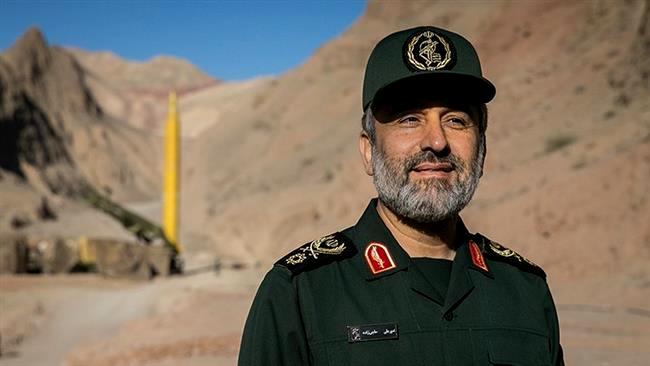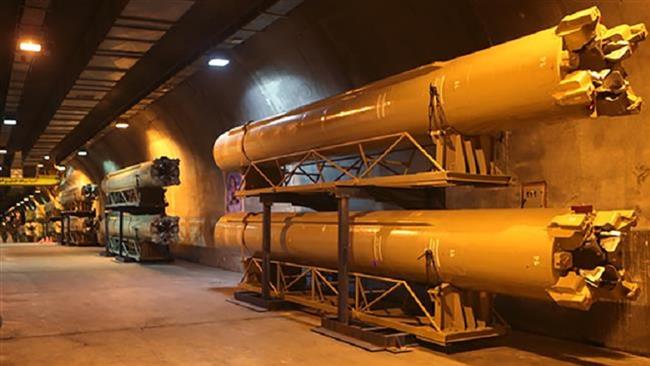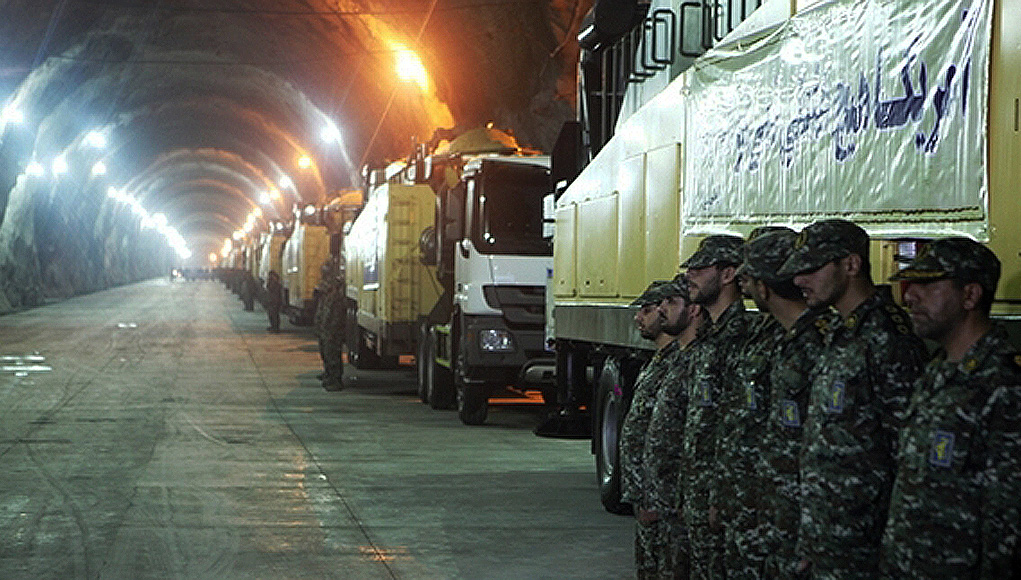Alwaght- Iran has announced completing its third underground missile production facility while vowing to strengthen its defensive missile might in the face of security threats facing the nation.
The revelation was made on Thursday by the Commander of the Aerospace Division of the Islamic Revolution Guards Corps (IRGC) Brigadier General Amirali Hajizadeh who also praised Iran’s achievements in the defense sector, including missiles, drones, radars and electronic warfare.
He said the “effective power” of Iran’s missile industry has prompted the country’s enemies to oppose Tehran’s possession of the know-how.

Commander of the Aerospace Division of the Islamic Revolution Guards Corps (IRGC) Brigadier General Amirali Hajizadeh
“All the basic material for manufacturing [missile] shells and producing fuel, etc for missiles are fully designed and manufactured at home by Iranian experts,” the commander pointed out.
He underlined the Islamic Republic’s determination to continue to develop its missile might and noted, it is natural that our enemies America and the Zionist regime (Israel) are angry with our missile program because they want Iran to be in a weak position."
“I hereby announce that in recent years the third underground missile production factory has been inaugurated by the IRGC,” added the commander.
He went on to state that "the next missile to be produced is a surface-to-surface missile."
In January 2016, IRGC provided footage of a deep underground tunnel filled with numerous Emad ballistic missiles. IRGC's first underground missile facility was unveiled on October 14, 2015.

The picture released on March 8, 2016 shows an underground IRGC missile facility
Iran successfully test-fired the Emad surface-to-surface missile, which has been completely designed and manufactured by experts of Iran’s Aerospace Industries Organization affiliated with the Iranian Ministry of Defense, on October 11 2015.
Iran has reiterated that despite certain restrictions stipulated in the UN Security Council Resolution 2231 under the terms of a July 2015 nuclear agreement between Iran and six world powers Tehran will keep boosting its defense capabilities.
Iran and the five permanent members of the United Nations Security Council – the United States, Britain, France, China and Russia – plus Germany finalized the text of the agreement dubbed the JCPOA in the Austrian capital Vienna on July 14 2015.
On July 20, the UN Security Council adopted Resolution 2231, which bars Iran from developing missiles "designed to carry nuclear warheads."
Iran insists that JPCOA has not banned it from boosting its defense capabilities including missile systems.



























